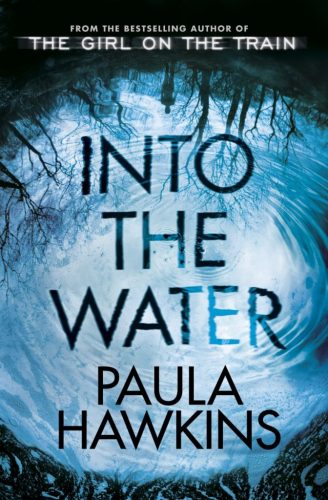
‘Again! Again!’ The men bind her again…This time they carry her into the water.
This is the much anticipated follow-up to ‘The Girl on the Train’, so of course all the publicity focuses on comparing the two and declaring this book to be “even better”. If by “better” the blurb writers mean “completely different”, then I have to agree with them: ‘Into The Water’ features a much larger cast and group of narrative voices, and focuses on the conceit of a small town, plagued by secrets, in which everyone knows everyone else but nobody knows everything and nobody knows the truth.
What’s it about?
When Jules receives a frightened voice mail from her estranged sister, Nel, she ignores it, just like she has ignored Nel’s other messages for the past umpteen years. However, this time, Nel dies.
Jules is furious to find herself dragged back to the town she grew up in, which is dominated by the river and local drowning spot she loathed. Finding herself a surrogate mother to a spiky teenage girl, Jules is simultaneously haunted by her past and the suspicion that Nel would never have jumped. But if that’s true, how did her body end up in the water?
What’s it like?
Fragmented. Mildly intriguing. Gossipy.
There are, quite simply, too many narrators, most of whom are first person. This is perhaps especially challenging when some of them turn out to be spouting mere guesswork! Nel, our most recent dead victim, was writing a book about the troublesome women who had drowned in the pool over recent years and in it she imagined what had happened to them, but her imaginings are underpinned by little more than wild gossip and whispered guesses. That doesn’t make for very satisfying reading.
This should be a gripping read. We don’t know why Nel died, but we do know that one old friend smiles in delight to hear of her death (!) and that her death is only a few months after another death at the pond – a young girl who seemed to have everything to live for.
Somehow though, the gossipy, fragmented storytelling slows the pace of the plot to treacle. We learn information so gradually that there are few “a-ha!” moments, more a gentle nod of “well that confirms that then”. This is even true of the denouement.
I did enjoy the way in which everyone thinks they know each other and no one really does, and the history of women involved with the drowning pool, but I found the overall narrative slow going and not particularly thrilling for a book promoted as a thriller.
Final thoughts
For me there were too many points of view and the plot development was too slow. However, I enjoyed the thematic connections to ‘The Girl on the Train’: secrets, domestic disharmony, men’s violence and sense of entitlement regarding women (Mark’s voice is chilling). In fact, I think this makes a wonderfully dark piece of domestic noir.
The prose is very readable, I just don’t consider it a thriller, and some readers – if picking it up because they are hoping for a fast paced thriller – may find the slow pace off-putting.
I shall be interested to see what Paula Hawkins writes next, especially as I find the way she writes about male attitudes towards women both utterly realistic and deeply frightening. The sense of arrogant entitlement shared by so many of her male characters is truly shocking. Let’s hope Josh’s generation grow up with different values and assumptions. No, let’s teach them to. Maybe reading this would help!


